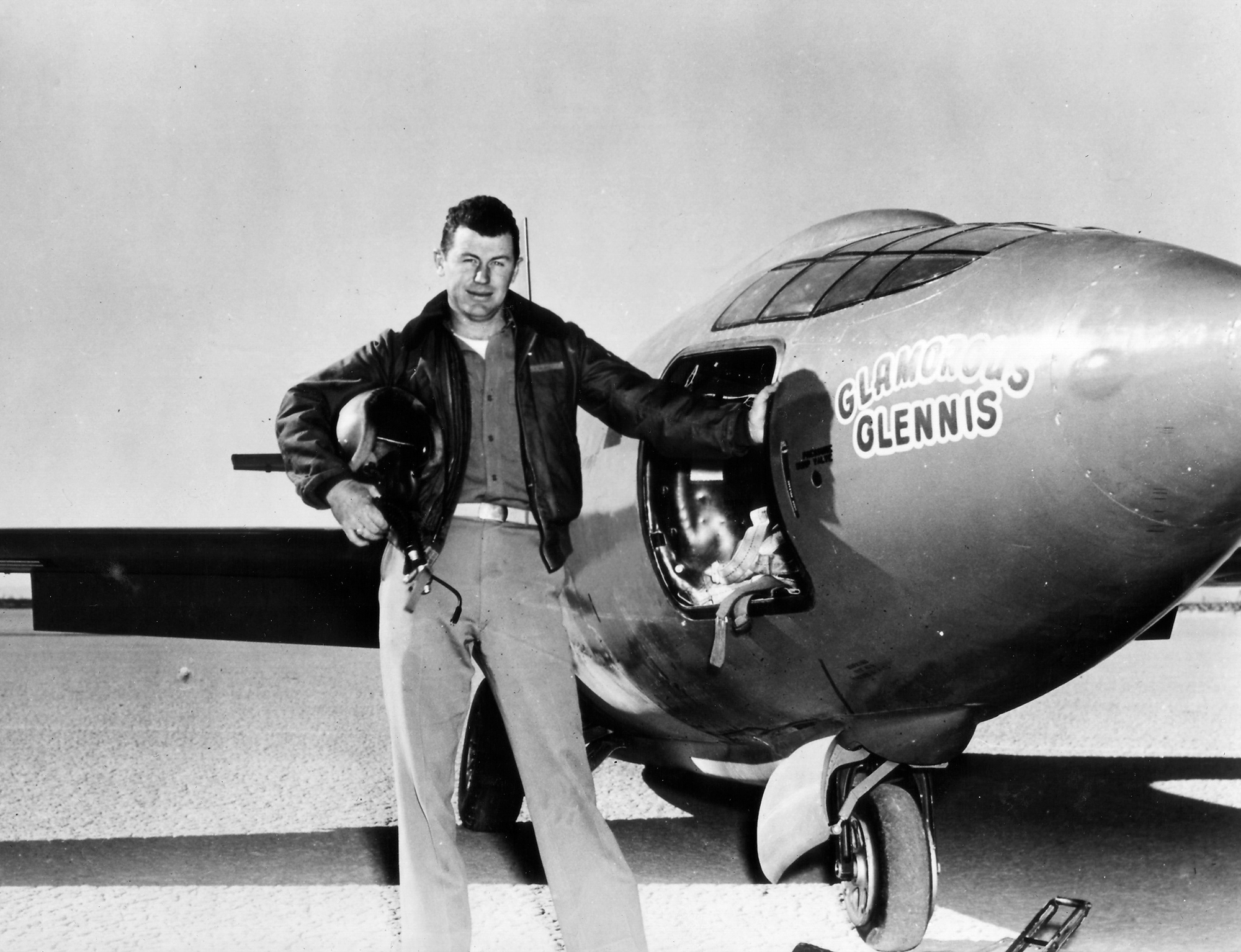Chuck Yeager, 1st pilot to break the sound barrier, is dead at 97
The acclaimed test pilot had "the right stuff."

Chuck Yeager, the U.S. Air Force Pilot who became the first person to break the sound barrier, died Monday (Dec. 7) at the age of 97.
Yeager's wife, Victoria, shared the news on Twitter, writing: "It is w/ profound sorrow, I must tell you that my life love General Chuck Yeager passed just before 9pm ET. An incredible life well lived, America's greatest Pilot, & a legacy of strength, adventure, & patriotism will be remembered forever."
Related: Breaking the sound barrier: The greatest moments in flight
Fr @VictoriaYeage11 It is w/ profound sorrow, I must tell you that my life love General Chuck Yeager passed just before 9pm ET. An incredible life well lived, America’s greatest Pilot, & a legacy of strength, adventure, & patriotism will be remembered forever.December 8, 2020
Yeager became the first person to break the sound barrier on Oct. 14, 1947, while flying the Bell X-1 rocket plane 45,000 feet (13,700 meters) over the Rogers Dry Lake in the Mojave Desert. During the flight, Yeager reached Mach 1.05, or 1.05 times the speed of sound. The aircraft, which he dubbed Glamorous Glennis after his first wife Glennis Yeager, who died in 1990. The Bell X-1 now hangs on display in the Smithsonian Air and Space Museum in Washington.
Yeager would go on to fly even faster aircraft, including the Lockheed XF-104, which flew more than twice the speed of sound. His daring test flights were featured in Tom Wolfe's 1979 book "The Right Stuff" as well as the film adaptation and new Disney Plus series by the same name.

Yeager's flying career in the U.S. Air Force began during World War II in 1941, where he served as a private and later an aircraft mechanic. He began pilot training in 1942 and became a test pilot after the war. Yeager flew a variety of experimental aircraft at Edwards Air Force Base.
In 1960, Yeager served as director of the Space School at Edwards and later would serve as a wing commander in the Vietnam War, where he flew over 130 combat missions, according to a NASA biography. Yeager also served on the Presidential commission that investigated NASA's space shuttle Challenger disaster, which killed seven astronauts, in 1986.
Breaking space news, the latest updates on rocket launches, skywatching events and more!
Yeager retired from the Air Force in 1975 at the rank of brigadier general after 33 years of service. He received numerous awards and commendations throughout his career, including the Distinguished Service Medal, Silver Star, Legion of Merit and the Bronze Star, according to the New York Times. Yeager also received the Presidential Medal of Freedom in 1985 from President Ronald Reagan, the Times added.
Editor's note: This is a developing story and will be updated as new details are available.
Email Hanneke Weitering at hweitering@space.com or follow her on Twitter @hannekescience. Follow us on Twitter @Spacedotcom and on Facebook.

Hanneke Weitering is a multimedia journalist in the Pacific Northwest reporting on the future of aviation at FutureFlight.aero and Aviation International News and was previously the Editor for Spaceflight and Astronomy news here at Space.com. As an editor with over 10 years of experience in science journalism she has previously written for Scholastic Classroom Magazines, MedPage Today and The Joint Institute for Computational Sciences at Oak Ridge National Laboratory. After studying physics at the University of Tennessee in her hometown of Knoxville, she earned her graduate degree in Science, Health and Environmental Reporting (SHERP) from New York University. Hanneke joined the Space.com team in 2016 as a staff writer and producer, covering topics including spaceflight and astronomy. She currently lives in Seattle, home of the Space Needle, with her cat and two snakes. In her spare time, Hanneke enjoys exploring the Rocky Mountains, basking in nature and looking for dark skies to gaze at the cosmos.
